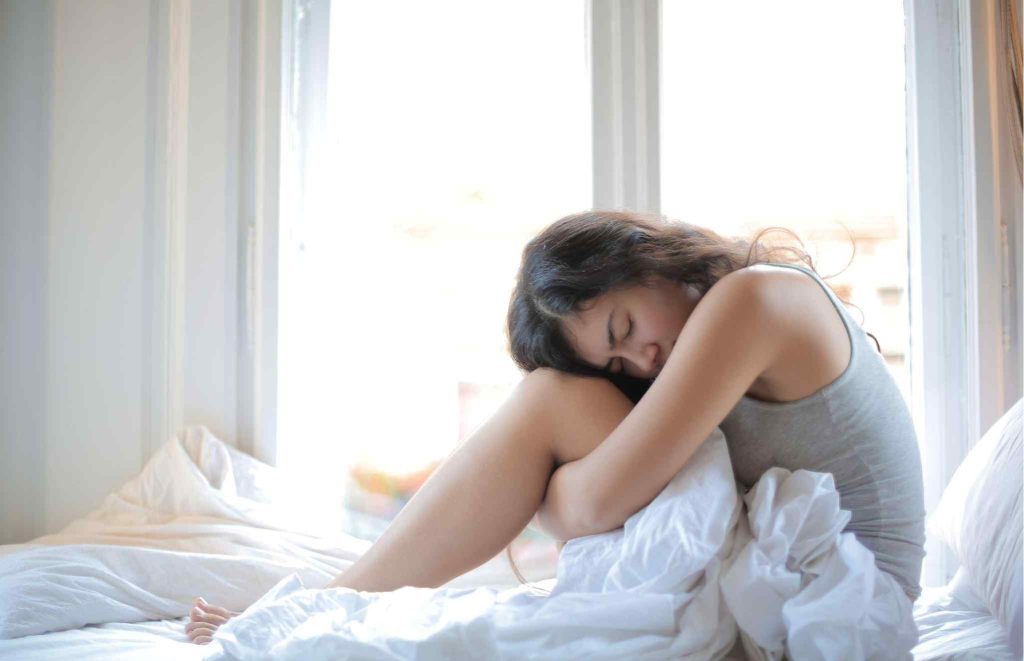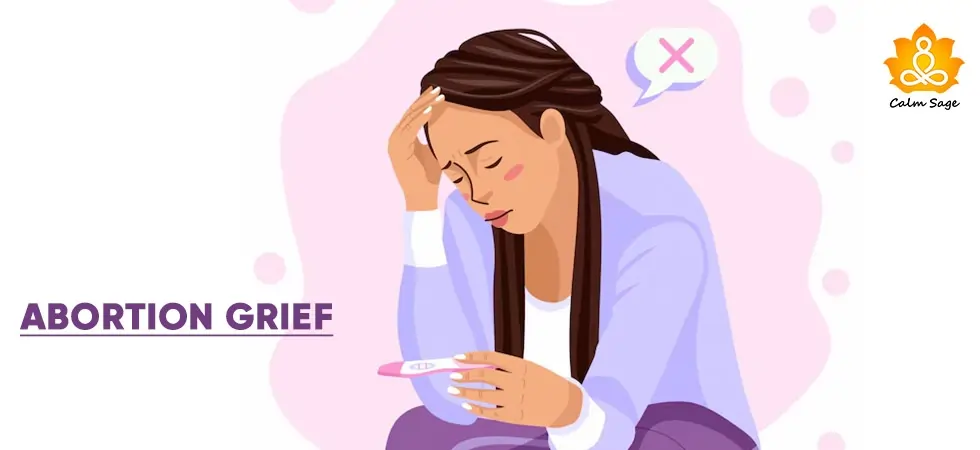“Am I Depressed If I Don’t Feel Sad?” | The Many Faces Of Depression

“If you’re not sad, then you’re not depressed” – this is the thinking of most people I’ve interacted with. They say that if one doesn’t feel sad then one must not be depressed. While I understand that sadness is one of the main symptoms of depression, it isn’t the only one. Depression without sadness can exist.
You may notice other signs as well such as experiencing trouble sleeping, feeling a loss of interest in things you previously enjoyed, or you have become more prone to sudden emotional outbursts. That’s not all either.
You might not exactly feel sad, but you may also feel hopeless, empty, and numb. So, you see, sadness is one part of depression, yet it’s not the only one. Even if others around you don’t notice visible signs of sadness, it doesn’t mean that there’s nothing serious going on with you.
It is a common myth that to feel depressed you need to feel sad. But what many people don’t understand is that depression without sadness exists and can be more common than they can imagine.
Let’s take a look at how you can feel depressed but not sad and how you can go forward from there.
Depression Isn’t Always Sadness…

It is possible to experience depression and its signs without feeling sad. There’s a chance that you may receive a depression diagnosis but not always feel hopeless or even sad. Just because you feel depression without sadness doesn’t mean that your depression isn’t valid.
There are other symptoms of depression that can indicate the disorder. And what symptom you experience might not be the same for me or someone else. For example, I might experience insomnia and appetite changes more, but you might experience fatigue and sudden emotional outbursts more. Sadness does not need to be one of the main symptoms to be diagnosed with depression.
When it comes to sadness, it can be hard for many people to feel sad or connect with the experiences of sadness because of chemical imbalances in the brain, cultural background, parenting styles, and other societal values (for example, toxic masculinity).
You can feel depressed, even if you;
- Genuinely laugh at your friend’s joke
- Suddenly burst into tears after laughing
- Experience moments of joy
- Feel an absence of sadness
- Easily complete your task without delay or procrastination
Fun Fact: Did you know that depression without sadness can be called non-dysphoric depression?
According to the criteria set by the DSM-5, your symptoms of depression might be present for 2 weeks and more to be diagnosed with a depressive disorder. Here are the symptoms that you need to have to be diagnosed with a depressive disorder;
- Frequent mood swings
- Feeling a loss of interest in things you previously enjoyed
- A significant change in weight
- A significant change in your appetite
- Experiencing sleep disruptions
- Feeling worthless, shameful, or guilty
- Experiencing fatigue or loss of energy
- Trouble focusing
- Experiencing suicidal thoughts
If these symptoms are interfering with your day-to-day life and causing significant distress, then you might be diagnosed with a depressive disorder.
Depression vs. Sadness

We usually relate depression with sadness but if we look at these two separately then sadness is an emotion while depression is a mental health condition. Sadness is just one part of depression. You can feel sad if you experience a loss (material or personal), go through a major lifestyle change, or even when facing an unexpected situation.
Depression, on the other hand, is a clinical condition that causes changes in your mood and behavior. You can feel sad at random times but depression and its symptoms can last for 2 weeks and more, uninterrupted, and can even last for months or years.
Sadness might not impact your daily functioning and might not even last long but depression can impair your cognitive, physical, emotional, social, and mental functioning and can be long-term.
We all feel sad from time to time, but not all of us might feel depressed. And if you feel symptoms of depression but don’t feel sad doesn’t mean that you’re not depressed.
Can Depression Differ In Men And Women?
Yes! The signs of depression in men can be different from the signs in women. Men are more susceptible to angry outbursts, and irritability, and can turn to alcohol to cope with their symptoms, however, women who are reported to experience depression twice as often as men, have other more prominent symptoms.
For women, the factors of depression can be hormone related such as menopause and post-pregnancy, or culture-related such as parental burnout or job inequality. Women are also more likely to experience sadness as the main symptom of depression.
Why such a difference? Well, it is reported that brain chemistry differences can determine how a person responds to different emotional states and situations. Even the culture they grow up in can determine their emotional expression.
For example, if you are raised in a culture where feeling sad is considered a weakness, then you may learn to express your emotions differently. However, it does not mean that what you feel is less important or less valid.
Can You Be Happy When Depressed?
Depression can make you feel a variety of emotions and emotions are complex. I believe that’s why it’s easy to feel opposing emotions at the same time. Of course, the ability to tap into your opposing emotions, i.e., happiness and sadness, in our case can depend on different factors. Some of them can include;
- The severity of your symptoms
- The type of depression you have (MDD, Seasonal depression, or Dysthymia)
- The other health conditions you have
- Other co-occurring mental health conditions such as bipolar disorder
All emotions are fleeting and not all emotions have a logic, so you need to be emotionally self-aware to understand how your emotions affect your depression or your moods.
Is There A Treatment For This?

If you’re experiencing depression without sadness doesn’t mean you’re not depressed. No matter what your depression looks like, here are some treatment options you can seek;
-
Therapy
There’s CBT that a professional can recommend to you to help identify and challenge your negative thoughts. They can also help you learn helpful (and healthy) coping skills to increase social engagement which can help you decrease your depressive symptoms. Another treatment can be group therapy where you can also interact with others going through the same.
-
Medications
There are also antidepressants that a doctor can prescribe to help you balance your mood swings and symptoms of depression. Medications can also be paired with psychotherapy. Please note that only a professional can prescribe antidepressants, and you shouldn’t take any medications that are not prescribed by a doctor.
-
Self-Care Techniques
Another way you can overcome depressive symptoms is by engaging in self-care techniques. Here are some self-care exercises you can consider;
- Try to get enough sleep
- Eat healthier
- Get regular exercise
- Go for a walk in nature
- Get fresh air
- Stay outdoors in the sun
- Try mindfulness or meditation
What Next?
Depression can manifest in different ways for other people. As humans, our experiences with emotions may vary as well as our ways to express those emotions. Sadness is just one part of depression, so it’s highly possible to experience depression without sadness. What you’re feeling (or not feeling) can depend a lot on your diagnosis too.
A mental health professional can help you understand more about your diagnosis and its symptoms.
So, if you’re asking yourself, “Am I depressed if I don’t feel sad?” then the answer is “yes, you can”. And you’re not alone in feeling this way. There are many faces of depression and each face has its own expression, just like us.
All you need to do is learn how to read those expressions. A counselor can help you or you can write to us at info@calmsage.com.
I hope this article helped you. You can share your thoughts (and tips) with us in the comments below.
Take Care!




















